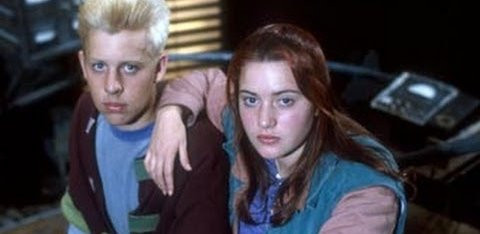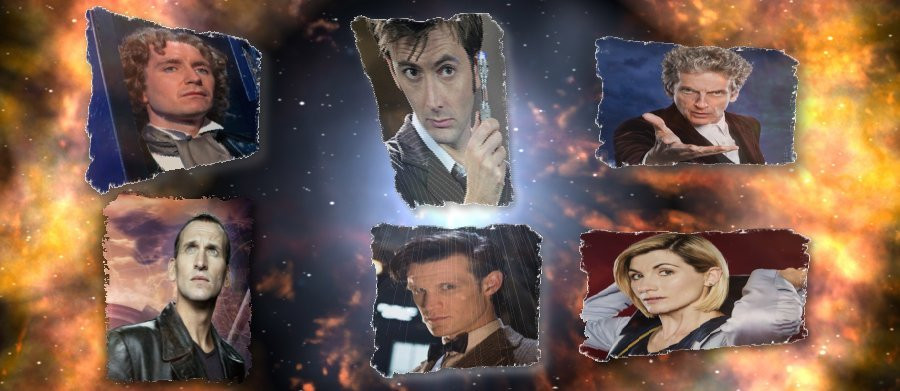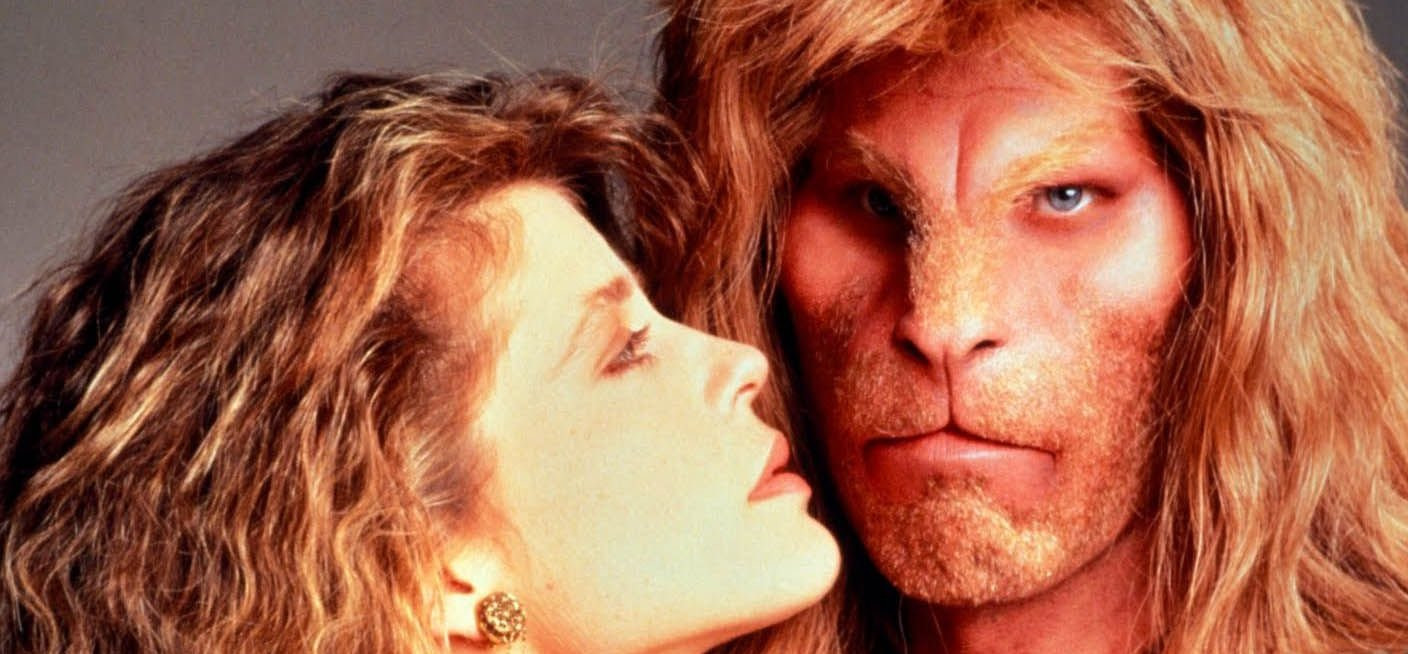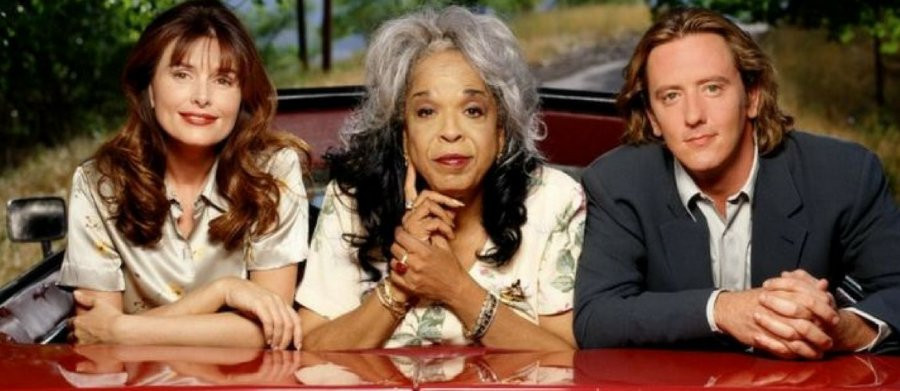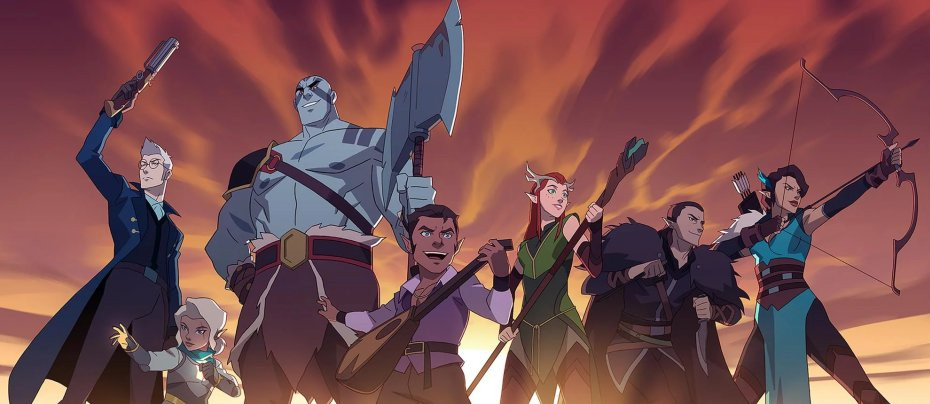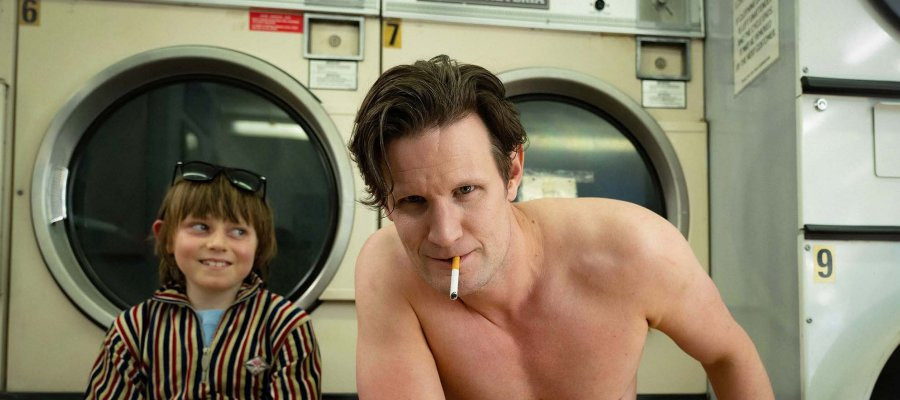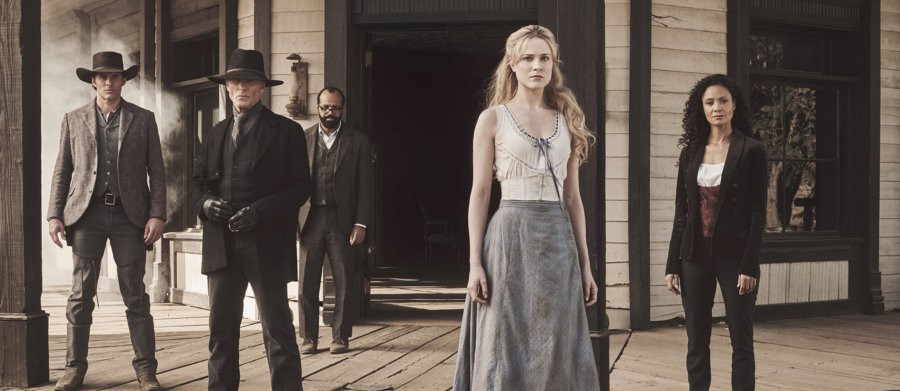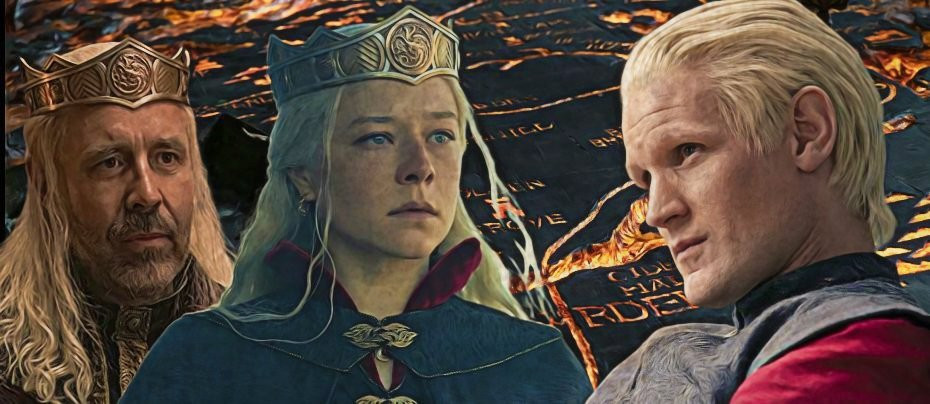
House of the Dragon
2022 - United StatesThe most impressive thing of all about Season One is that is only an Introduction
House of the Dragon review by John Winterson Richards
It became something of a cliche that streaming services were looking for the next Game of Thrones, a fantasy drama that could enter popular discourse. Several expensive and prestigious productions were supposed to be contenders, including The Witcher on Netflix, and The Wheel of Time and The Lord of the Rings: the Rings of Power on Amazon Prime. In the end, however, it was Game of Thrones that turned out to be the next Game of Thrones - or rather its "prequel" series, House of the Dragon, on HBO.
This is a brief, spoiler light overview of its very successful first season. Consciousness of the show was probably raised by the perception that it was in some sort of competition with The Rings of Power, which was released around the same time. That competition was a media or marketing invention: there was, of course, absolutely no reason why anyone had to choose one or the other; as streaming products, both were unscheduled and available on demand. They were also aimed at slightly different markets. The Rings of Power appealed more to the older generation, the sort of people more likely to read books, while the nominally more "adult" attitude to sex and violence in House of the Dragon is really more for younger viewers.
Yet there was a big overlap between prospective and actual viewers of the two, and in retrospect it is possible to say that one is the mirror image of the other in the way fantasy fans reacted to them. Many had been waiting with genuine anticipation for a fresh take on Middle Earth since Sir Peter Jackson's slightly disappointing Hobbit trilogy - only to feel let down even more by The Rings of Power. By contrast, hardly anyone was eager for a prequel to Game of Thrones after the original had turned into something of a shaggy dog story, but good word of mouth soon had even those determined never again to invest in another George RR Martin project deciding to take a peak after all - and getting hooked immediately.
The prequel is a difficult format to get right. The story is limited by the fact that we know how at least some of it is going to turn out. This is doubly the case when it is an adaptation of a book.
What House of the Dragon does very cleverly is turn these expectations against us. We see the likeable patriarch, the loving but headstrong daughter, and the vicious prince and we remember from Game of Thrones where this is all heading, but we are content to go along with the ride because we enjoyed it last time. Instead of uncertainty we are being given suspense and foreboding. The show knows what its fans like and is going to give it to them. It is when we are confident of where we are that the show reminds us that it is Game of Thrones in every sense and starts hitting us with surprises. However, the writers seem to have learned from the mistakes of the last seasons of Game of Thrones, so the surprises are not arbitrary changes of direction. The suspense and foreboding remain: we are still fairly sure of where we are going but we are not going by the route we assumed, so we get the thrills of both inevitability and uncertainty combined. It is a heady brew.
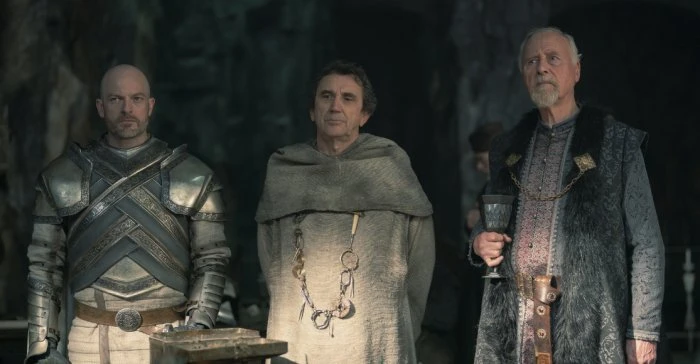
The production does everything possible to keep us in that state of mind. Many of the locations and sets are familiar from Game of Thrones, but at the same time subtly different, reminding us that there are almost two centuries between the stories. This is also shown in the costumes, reflecting the difference between, approximately, the 13th Century and the 15th Century in our own world.
We are reassured by Ramin Djawadi's familiar music from Game of Thrones, especially the main theme over the opening titles, which use the same clockwork motif as the original - except with the addition of an ominous flow of blood. It is a clear signal that we are in the same universe, but things are a bit different: for one thing they are going to get bloodier - and they do. Only a few minutes in we get the first decapitation in accordance with Game of Thrones tradition, but the new show also has a new obsession - the horrors of Medieval childbirth. To be honest some of those scenes are unwatchable, but they do well to illustrate a valid and important point made by one of the characters involved, that throughout history childbirth was to most women what the battlefield was to men.
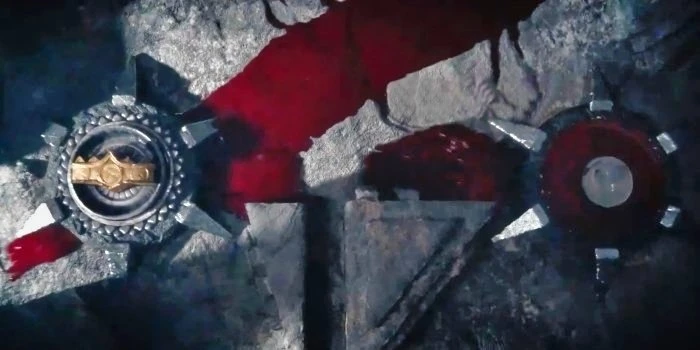
This combination of familiarity with difference enables the show to exploit the fruits of the clever strategy adopted by the early seasons of Game of Thrones in holding back its fantasy elements until its world building was well established. House of the Dragon is able to take advantage of this: the first thing we see after the Prologue is, appropriately, a dragon. Perhaps more significantly, we see how people in the streets below pay little attention as it flies directly overhead. It establishes at once that this is a time and place where dragons are a natural part of existence.
The dragons were one of the most popular elements of Game of Thrones, so it is as if the producers are proclaiming to the viewer "You like dragons? We're going to give you lots of dragons!" - and they do. We get dragons of different sizes, shapes, and colours. We get a heart in the mouth scene of a character's first flight on the biggest dragon in the world. We get our first dragon dogfight, so to speak - one suspects the first of many - even if this one is a bit of a foregone conclusion: the viewer can actually end up feeling quite sorry for a CGI lizard that takes on another five times its size. It is all splendidly done, even when one is fully aware that none of it is real.

There are also plot elements familiar from Game of Thrones. What was said there about killings at Dothraki weddings seems to apply equally to Westeros weddings, so, in the fine tradition of the Red Wedding and the Purple Wedding, House of the Dragon gives us the Green Wedding.
Above all, House of the Dragon follows the same casting strategy as Game of Thrones, which basically means hiring a job lot of respected but relatively cheap actors, mainly from Britain and Ireland. There are, so far, no really big name stars in House of the Dragon but enough well-known faces to make the viewer feel comfortable and they all take their parts seriously.
Top of the bill, both in his professional status and the quality of his performance, is Paddy Considine as the weak, well-meaning King who nevertheless has moments of acute intelligence and Royal assertiveness. It is the inevitably tragic tale of a man who just wants everyone to get along. He starts out as earnest and even energetic, but we see disillusion set in gradually, exacerbated by his ever-worsening health. In the end, a simple walk of a few yards becomes an epic - accompanied by a clever musical reference to the pompous King's Arrival theme from the original series - and we are happy for him when a family dinner appears to go off well, at least while he is there. It is ultimately a very moving performance by an actor who has long been admired for his work in projects that deserve to be better known. It would be just if his work here gives him the international standing, he merits. One suspects the usual snobbery about fantasy drama will deprive him of the big Awards, but it is pleasant to think someone might be reading this in the future and laughing at how wrong this prediction turned out to be.
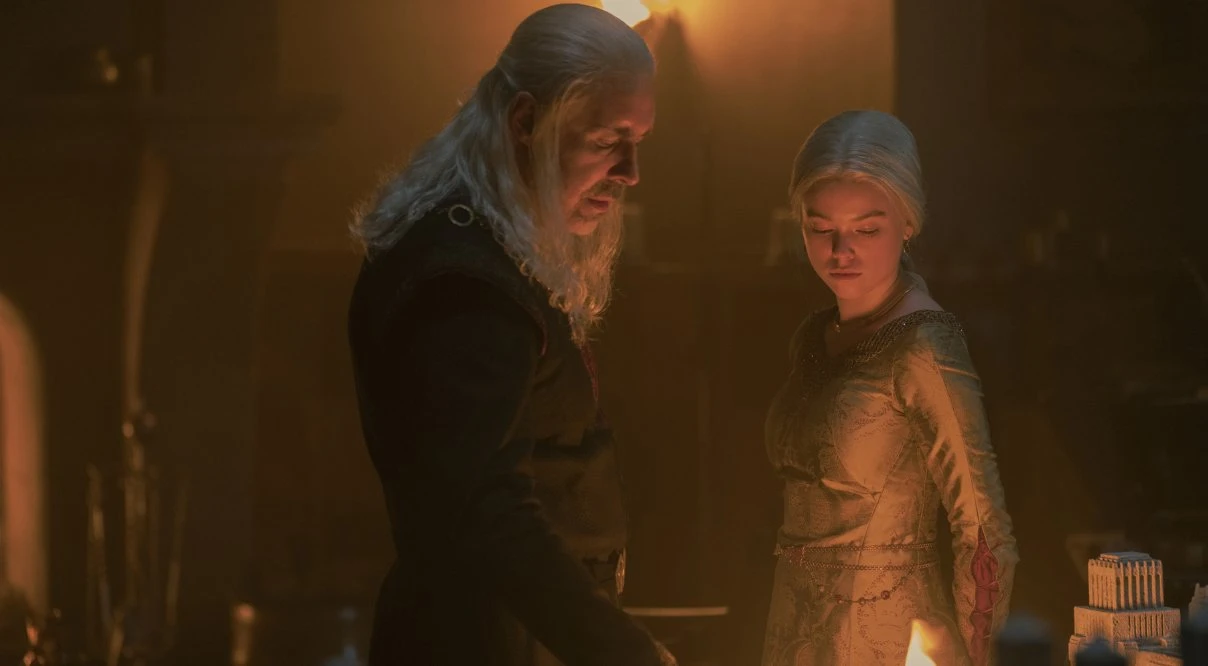
Milly Alcock plays the King's only daughter, who seems to be the main protagonist. She is the classic brave, confident, and intelligent young heroine, but we also see a negative side: she can also be arrogant, selfish, entitled, opinionated, and impulsive. Alcock might be termed precocious in the part until one discovers that she is in her twenties - which is both a tribute to her acting skill and something of a relief, given some of the scenes she has the play. Emma D'Arcy takes on the role as the character ages, as motherhood makes her more grounded and altruistic, while retaining the arrogance of a spoilt Princess.
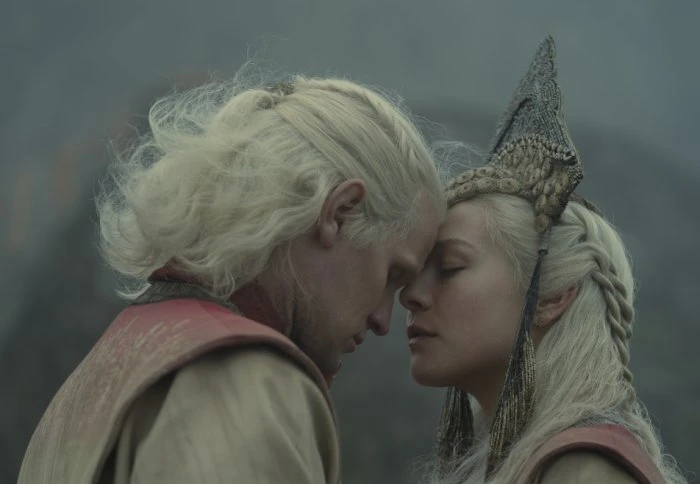
Matt Smith, always an interesting actor, finds the role he was born to play as the King's brother, a wild, erratic character about whom we never quite make up our minds. He seems at first to be the classic Wicked Uncle. Then he becomes decidedly Creepy Uncle. Then he develops into a Byronic adventurer. Yet he seems to be capable of at least moments of genuine affection for his wife, his children, his brother, and his niece. The Bronte Sisters would have loved him.
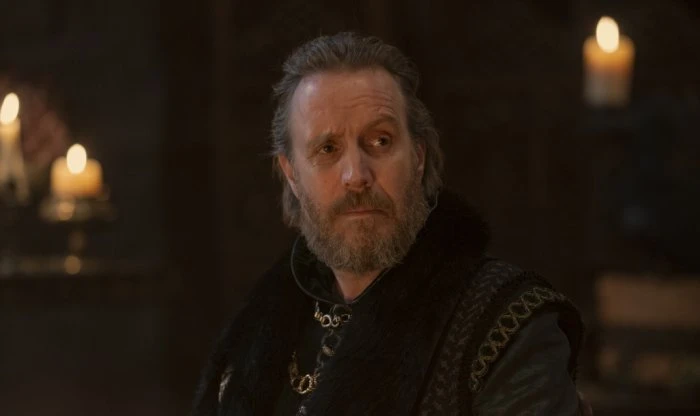
Rhys Ifans projects real authority as "the Hand of the King," in effect a sort of Grand Vizier, showing how he has matured quite magnificently as an actor. He bears comparison with Charles Dance in his commanding turn as Tywin Lannister, the definitive Hand of the King in Game of Thrones, except for the important difference that, unlike Tywin, Otto Hightower is not a powerful Magnate in his own right but the second son of a mid-rank Lord. Ifans therefore plays Otto more like a deferential Renaissance statesman than a Medieval Warlord. It is a thoroughly credible portrait of competent Minister who knows his own value.

Emily Carey plays his daughter, who is also initially Lady in Waiting to the Princess and her best friend. Olivia Cooke, who was so good in Vanity Fair, takes over the role later, and plays her as far less naive and innocent but still possessing a sense of honour. She is forced very reluctantly into scheming only by the need to protect her family. For some reason she is considerably less popular with viewers than the Princess, but, by any objective standard, her character and motivation are morally superior, and her actions less selfish. The masses always prefer wrong but romantic to righteous and resolute.

Eve Best, the eponymous Jackie's best friend in Nurse Jackie, excels as the woman who obviously should have been Monarch instead of King Paddy the Nice. She dominates every scene in which she appears simply by being there. Steve Toussaint is convincing as her husband, an ambitious admiral. They actually come across as a genuine married couple - a rare achievement in television these days - not especially affectionate but prepared to tolerate each other's failings.

Fabien Frankel, who was so effective in a supporting role in The Serpent, is the Princess' hunky bodyguard - and if you think you know where that is leading you have forgotten that this is George RR Martin. Sonoya Mizuno, looking far more feminine than she did in Devs, is a mysterious mistress of secrets. Those fine Scottish actors Bill Paterson and Graham McTavish, who both managed to emerge even from Outlander with credit, are loyal members of the King's "Small Council," respectively Master of Coin and Lord Commander of the Kingsguard. Ifans' elder brother is played by a fellow Welshman, Steffan Rhodri from Gavin & Stacey and The Last Kingdom. Ewan Mitchell looks like a character straight out of Terry Pratchett as a young Prince whose appearance dooms him to be a villain when, as he points out quite correctly, his accomplishments suggest he might be the best candidate to be King.
Just as Game of Thrones was based very loosely on the historical Wars of the Roses, House of the Dragon is based very loosely on an earlier episode in English history, "The Anarchy," triggered when most nobles refused to accept Henry I's daughter as Monarch and proclaimed her nephew Stephen instead. There are also hints of the Wars of the Roses, Tudor succession politics, and Scottish history in House of the Dragon.
Perhaps learning from his own mistake on Game of Thrones, Martin himself seems, so far at least, to be more closely involved with House of the Dragon. He cowrote the first episode with "showrunner" Ryan Condal - a relatively inexperienced writer whose only notable credit before this was the better of two Hercules feature films put out in 2014 but who seems to have done a remarkably good job in every department. It is also reported that the controversial showrunners of Game of Thrones were asked if they wanted to contribute - if so, one can only assume that it was a matter of contractual obligation and everyone was relieved when they declined: whether unfairly or not, the project would have been dead on arrival with their names attached.
Unlike Game of Thrones, the script is adapted from a book that takes the form of a pseudo-history rather than a standard novel and which is therefore rather light on dialogue. The scriptwriters evidently saw this as an opportunity rather than a problem and came up with some lines that may well prove as quotable as those still fondly remembered from Game of Thrones. The intricate structure is also very clever. Small points may prove very important later. Indeed, the show merits repeated viewing in order to pick up on some of those points in retrospect. It has the self-confidence to demand that the viewer plays close attention. In the same way it generally avoids exposition dumps, casually giving the impression in passing of a richly textured world and giving viewers credit for the ability to work some things out for themselves.
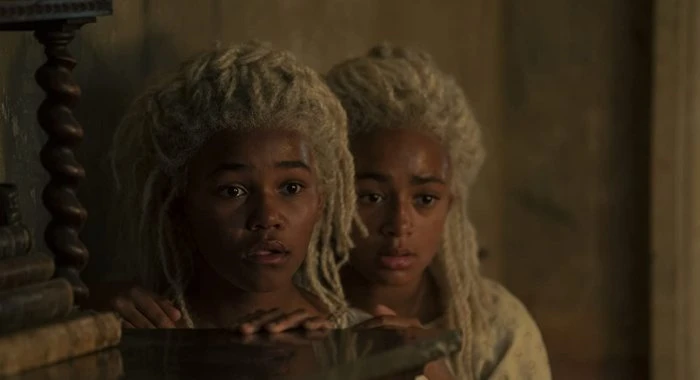
The nature of the source material demands some "time jumps," a device that is always fraught with dangers. The biggest of these occurs at exactly the half-way mark in the season and involves a number of cast changes oddly reminiscent of bringing on fresh players in the second half of a modern rugby match. This is inevitably a bit disorienting, but it is handled smoothly and, as in a rugby match, the reconstituted team soon settles down.
Where Game of Thrones started fairly modestly and grew in splendour as its increasing popularity led to a similar increase in budgets. By contrast House of the Dragon was given high production values from the start and wanted the world to know it.
The effects, sets, costumes, and props combine to form a wholly immersive imaginary world, but the directors do not luxuriate in it. They show enough to set the scene for the drama, no more. The make-up department deserves a special tribute for ageing the characters, especially the literally deteriorating King, effectively but not ostentatiously. The best make up does not look like make up.
The photography is stunning. An episode dedicated mostly to representing a single day, evening, night, and morning is particularly well done. It should be said that director Miguel Sapochnik's fondness for scenes set in the dark has not always found favour but here it is appropriate and executed with great skill.
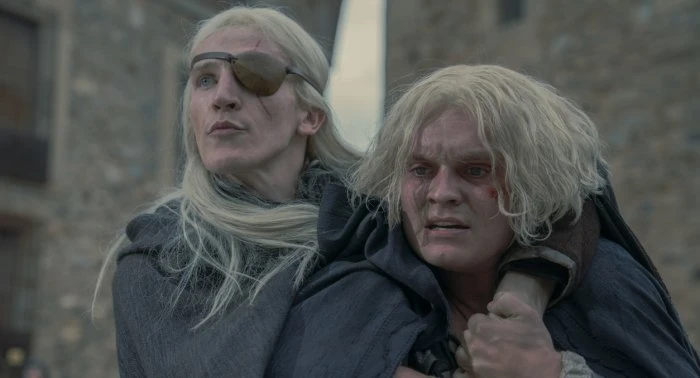
The most impressive thing of all about Season One is that is only an Introduction. It ends with what looks to be only the beginning of the actual Civil War, "The Dance of Dragons." The whole season is very well paced to that end. Everything starts relatively slowly and gently. Then things start to speed up and get more intense after that decisive half-way point. The last four episodes are masterpieces in miniature, but all different, like the movements of a symphony: the one with that memorable day, then a very emotional family drama, then a subdued episode mostly of low-key politicking, then the explosion. It has left this reviewer with a feeling that has been absent for a long time, in fact from the early seasons of Game of Thrones - impatience that it is now necessary to wait so long for the next season.
Seen this show? How do you rate it?
Seen this show? How do you rate it?
Published on November 30th, 2022. Written by John Winterson Richards for Television Heaven.


